Water Kefir vs. Kombucha: A Comparative Guide to Fermented Beverages
Water kefir and kombucha are the most popular fermented fizzy drinks. Each has unique fermentation processes, flavors, and health benefits. Let’s explore how these drinks differ in their microbial cultures and fermentation.
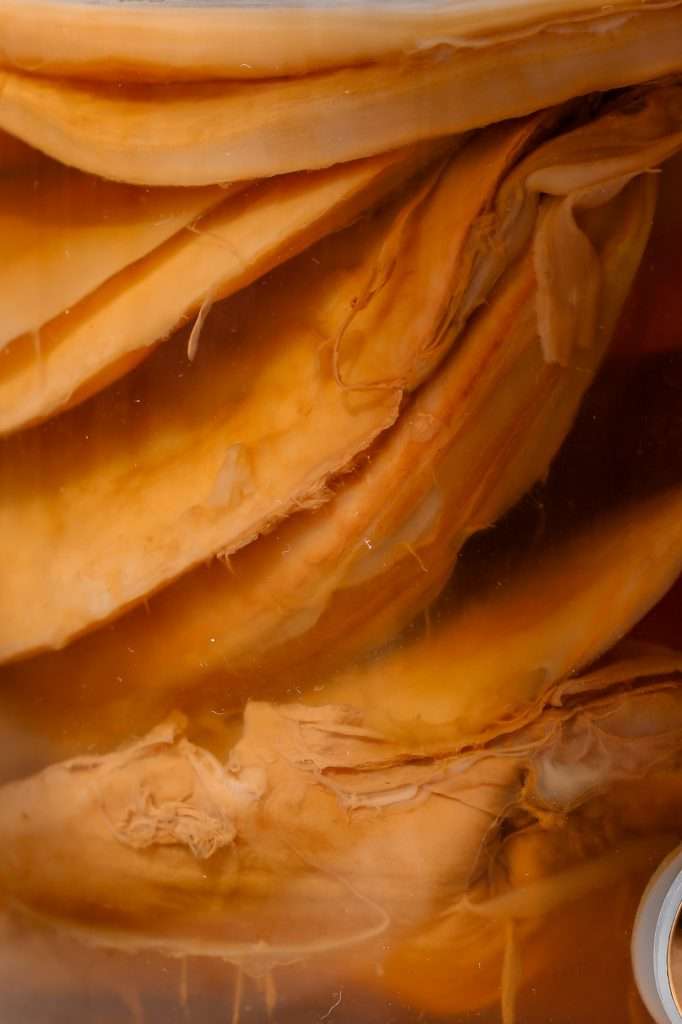
Key Differences in Microorganisms and Fermentation Processes
Kombucha: This effervescent drink comes to life through a SCOBY (Symbiotic Culture Of Bacteria and Yeast), rich in acetic acid bacteria and various yeasts, including Saccharomyces. These microbes work together to ferment the sweetened tea, producing a tangy flavor and a host of postbiotic compounds. The process usually takes about two weeks, involving a primary fermentation that develops its distinct taste and a secondary fermentation that enhances carbonation.
Water Kefir: On the other hand, water kefir uses kefir grains—gelatinous colonies composed primarily of lactic acid bacteria from the Lactobacillus, Bifidobacterium, and Leuconostoc genera. These grains ferment sugary liquid and create a mild, slightly tangy beverage. Carbonation occurs during a shorter secondary fermentation phase, typically lasting around four days, primarily facilitated by Leuconostoc bacteria.

Health Benefits and Nutritional Profile: Water Kefir vs Kombucha
Kombucha: Kombucha’s health benefits are primarily derived from its rich composition of postbiotic compounds such as glucuronic acid, polyphenols, and various organic acids. These substances are believed to offer detoxifying properties and support overall wellness. The fermentation process also infuses kombucha with antioxidants and vitamins, contributing to its reputation as a healthful drink.
Water Kefir: Water kefir stands out for its probiotic properties, thanks to its diverse bacterial culture. In addition to probiotics, it produces a range of postbiotic compounds, including organic acids and bioactive peptides, which are beneficial for gut health and general well-being.
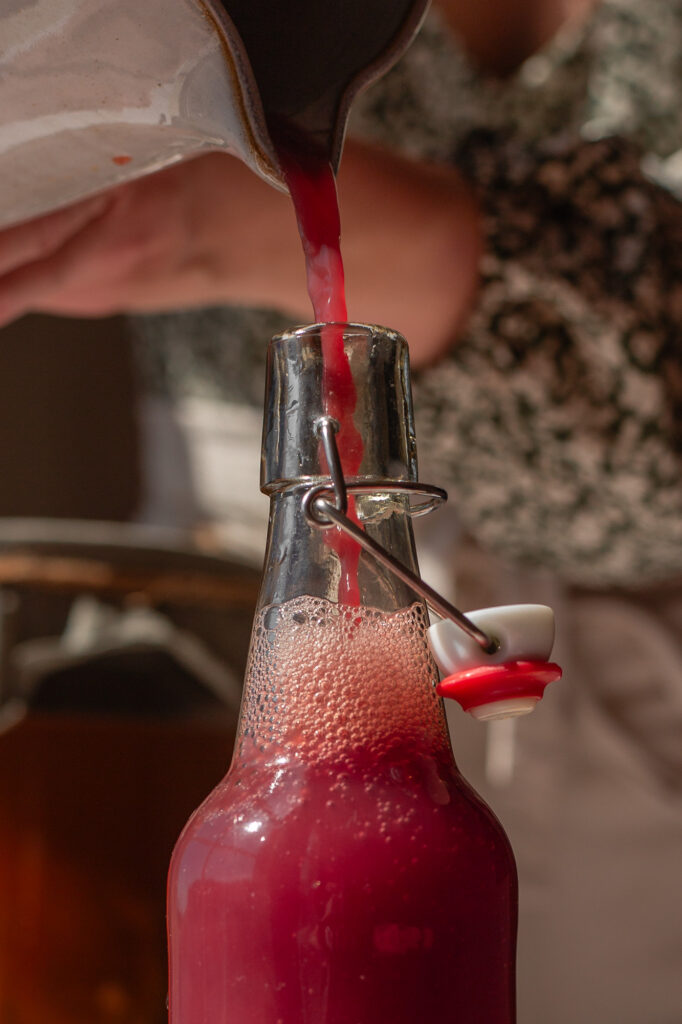
Water Kefir vs Kombucha Conclusion
When choosing between water kefir vs kombucha, the decision often hinges on personal preference for flavor and specific health benefits. Kombucha offers a robust, vinegary taste and a rich array of health-promoting compounds, making it ideal for those seeking a potent fermented beverage. With its gentler flavor and probiotic content, water kefir is perfect for those looking for a probiotic boost in a lighter, refreshing form.
Both beverages enrich the diet with beneficial microbes and offer delightful ways to enjoy the advantages of natural fermentation.





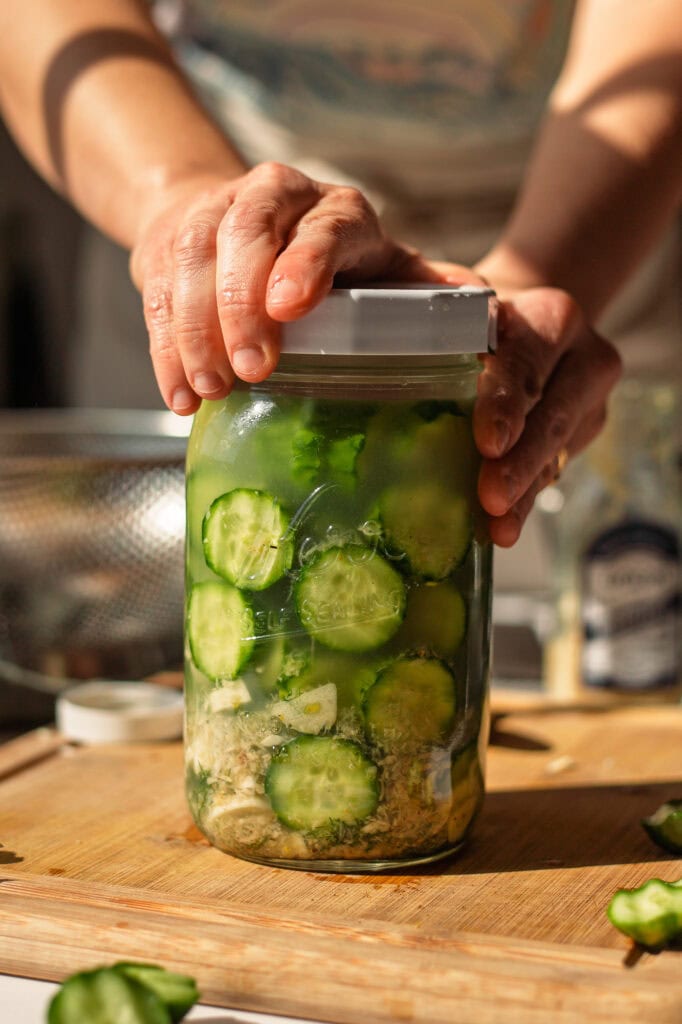






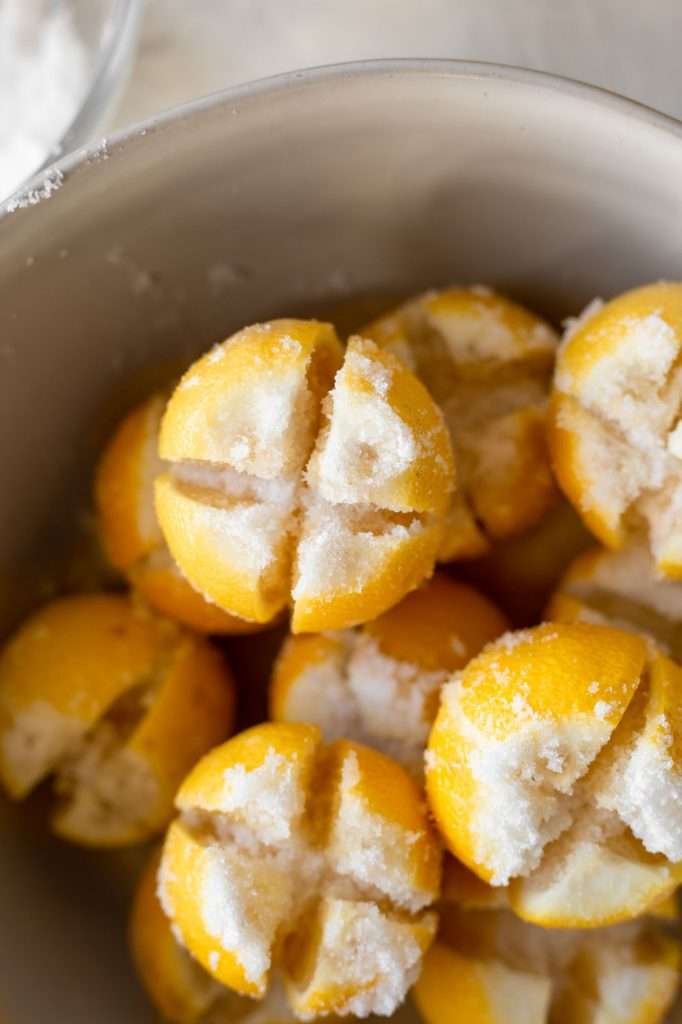

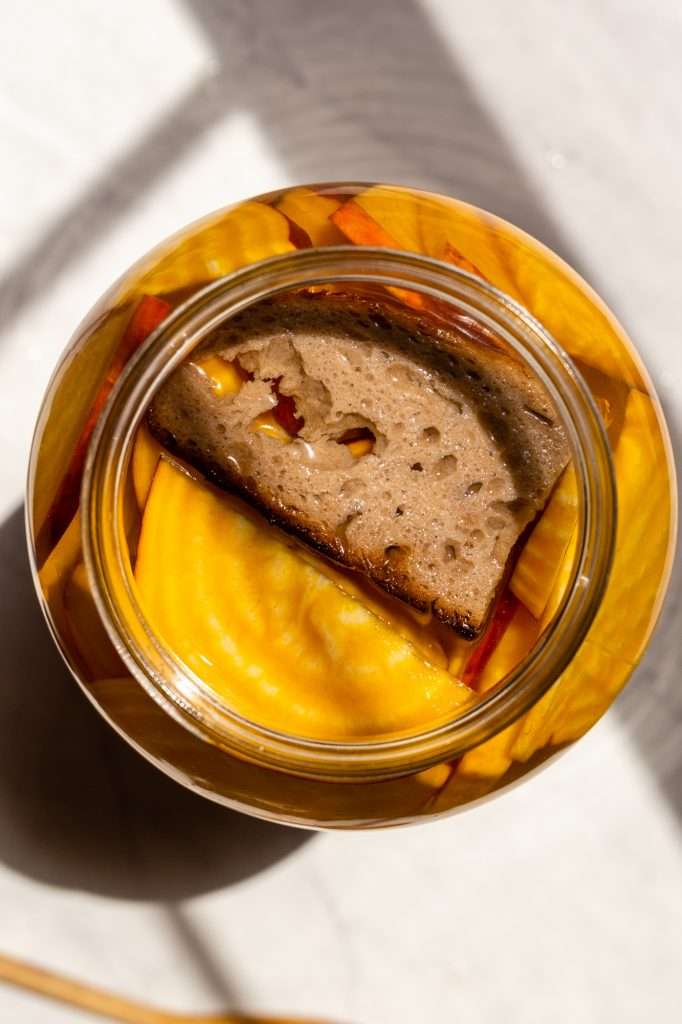
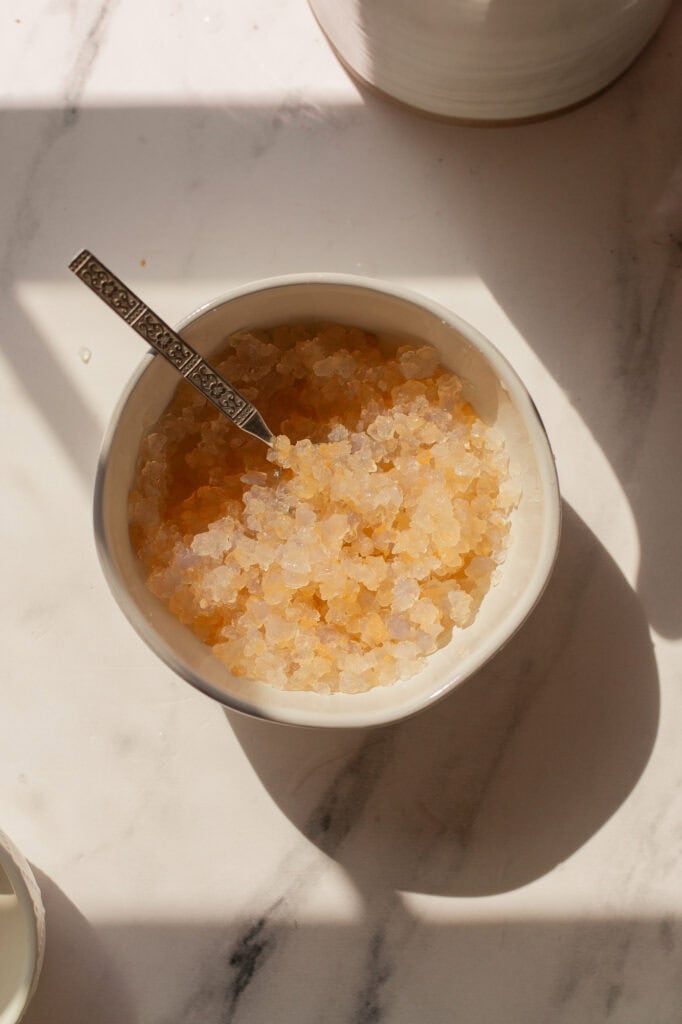
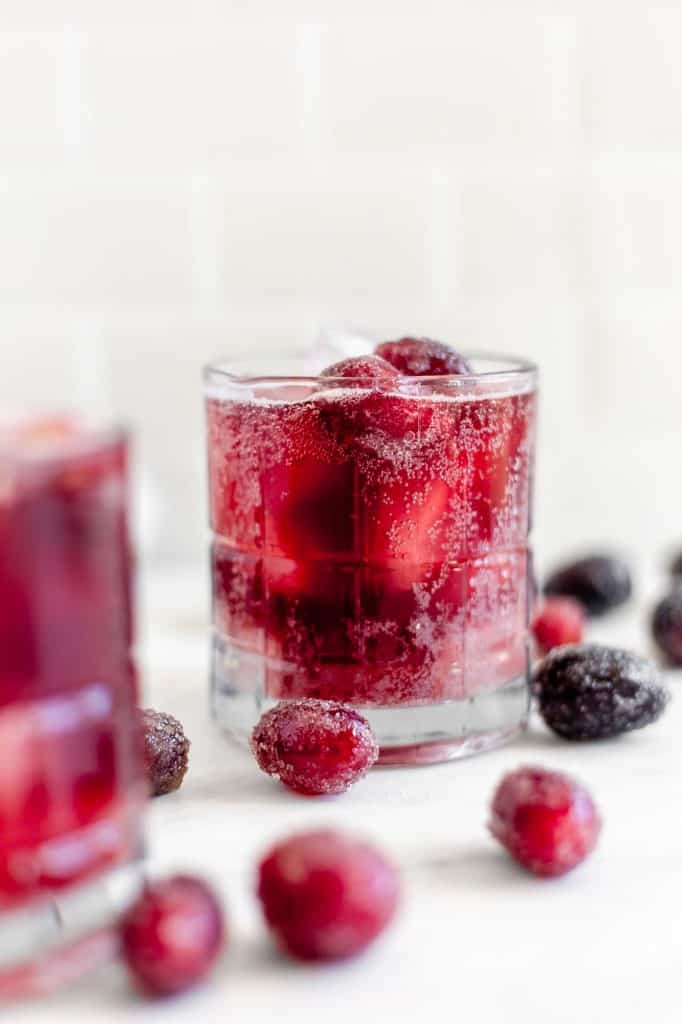
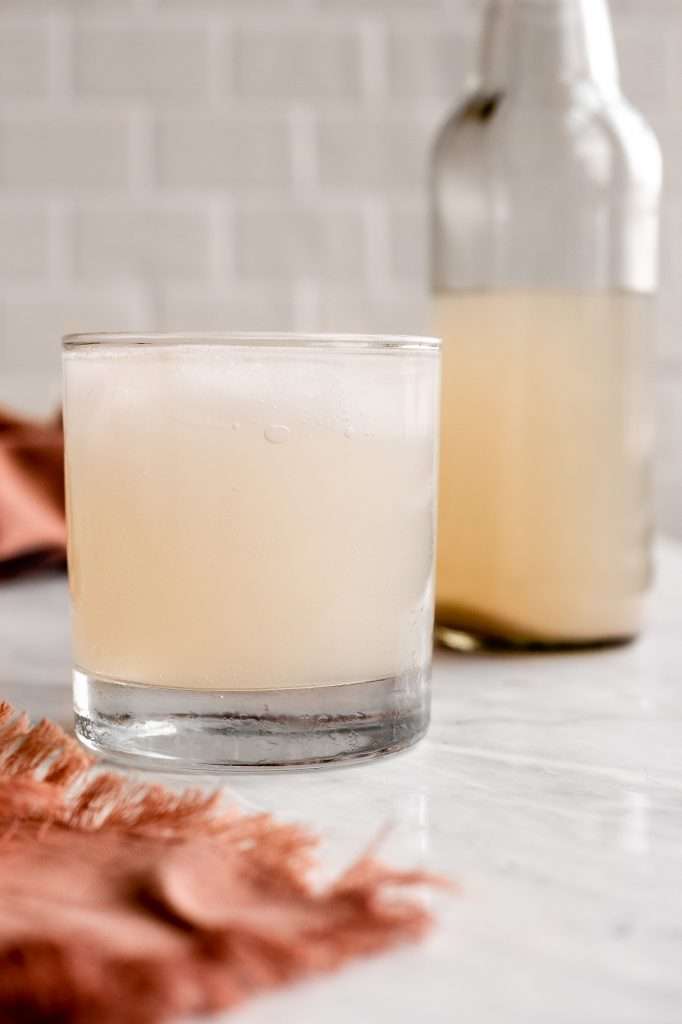

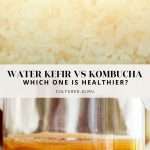
Hi.
I wondered if, as an interested scientist, you could answer this one for me?
I read on Happy Gut Pro a claim that their water kefir (WK) is “concentrated with b12, b6, and b1”. I challenged them on this & by reply they sent a paper referring to milk kefir. Now, obviously, milk already has B12 in it, so I presume that is the source. Have you ever seen any evidence that WK can produce B12? By reading of the list of bacteria is that there are no B12 producing bacteria in it, & where would they get the cobalt to do so?
I’m also interested in the actually level of micronutrients (concentrated reads as awfully misleading to me) but also their nutritional requirements. Beyond just dropping a fig in now & again, could we/should we been feeding them more than just sugar? Could that increase their nutritional value & health?
On the other hand, I’d be interested to know if it was possible to add B12 bacteria to the culture. It would be a real game changer for the vegan movement if you could “home brew” your own B12. For example, B12 producing endosymbiotic bacteria have recently been discovered in some plant sources.
Sorry to be so verbose but I find the lack of serious discussion about these beyond the hype on the internet to be very frustrating. Even the relatively few academic papers really don’t seem to say much beyond “more study required”.
Cheap, alternative fizzy pop aside, do we even know if or how good drinking it is on a long term basis?
Lastly, have you ever done any alcohol level testing on yours?
Thank you
Hi there,
First, mostly all acedemic studies end with “more studies are required”. That’s the nature of science. There’s always more to know, and more to find out. Not all fermented foods and drinks are created equally. There are a lot of vriables that impact fermentation and what microbially syntesized byproducts are in fermented foods and drinks. This makes it hard for studies to draw “blaket” conclusions about specific fermented products. For instance, my water kefir and sauerkraut are vastly different from any others.
I do not fact check or validate fermentation information provided by others, so let’s just move straight to discussing bacteria that produce B12…
Water kefir grains and milk kefir grains do contain similar microorganisms, but there are a few species differences. Species in water kefir grains vary, depending on the source and how they are cared for. Yes, I have read in a few studies that the Lactobacillus species in water kefir can produce B12. Some of these microbes have a B12‐dependent metabolic pathway that converts glycerol (glycerol is produced by Leuconostoc bacteria via heterolactic fermentation) into propanediol, which allows LAB to synthesize B12. It happens in sauerkraut and other fermented vegetables too, but conditions and fermentation parameters like salt concentration and fermentation time have to be right.
I feed our water kefir with molasses, sea salt and sugar to provide nutrients. So yes, I think they should be fed more than just sugar. The molasses provides manganese, magnesium, copper, vitamin B6, selenium, iron and calcium.
Yes, drinking water kefir is wonderfully healthy in moderation. 6 ounces a day is enough and it provides vitamins, enzymes and probiotic species of microbes. But again, the health attributes and safety all depend on how it is made, ingredients used, fermentation time, source of grains etc.
No need to do alcohol testing, as I fully understand the microbial metabolism that happens with my grains. I do not use more than 5% sugar, so there’s never more than about 0.2% alcohol in my water kefir.
* (I tried making a ‘long term brew’ entire in the fridge a few times, & it came up with a really nice, sharp & clear taste, which I put down to a higher alcohol level. No sweetness, but no vinegary flavor at all).